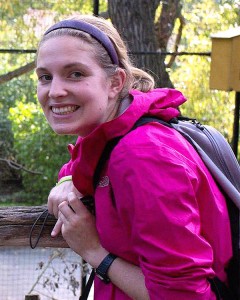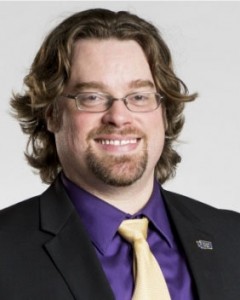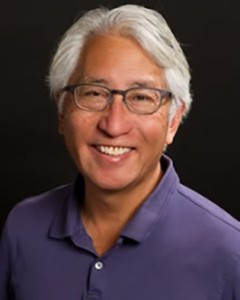Laura Koehn, Ph.D. Student, School of Aquatic and Fishery Sciences
 Neighborhood: Fremont
Neighborhood: Fremont
Area of study, as you would tell your advisor: Fisheries management
Area of study, as you would tell your family: Marine ecology
Laura Koehn studies interactions between forage fish, predators and forage fisheries in the California Current. She is the recipient of several scholarships and grants, including a North Pacific Marine Science Organization travel award and a Pacific Seabird Group Travel award this year. In 2015, Koehn received an honorable mention for the National Science Foundation Graduate Research Fellowship. As an undergraduate at the UW, she studied penguins in Argentina with Dee Boersma and The Penguin Project.
Work
Give us a one-word description of how you work:
Effectively
How do you manage your to-dos?
I write to-do lists in a notebook or day planner.
What are your essential apps, software or tools?
R studio, Dropbox, Excel, Gmail
Where do you most often work?
My office.
How do you manage your time?
When I have a bunch of things that need to get done, I tackle what I’m most interested in working on first, unless there is something with a nearer deadline. I also like to give myself deadlines for smaller tasks that make up a bigger task.
What is your best time-saving shortcut?
I use the people around me as resources when I don’t know answers instead of endlessly Googling/searching.
What are some of your productivity strategies you’ve honed over your years in school?
Focus on small chunks of work to accomplish bigger tasks, that way you feel good about completing something sooner. Take breaks — if you really can’t focus, it’s better to take a 15 minute or so break and get some fresh air than continue to try and struggle through. Alternate between tasks you find fun and those that are mundane or hard.
Life
What mundane thing are you really exceptional at?
Riding the bus.
What are you currently reading? For pleasure, if possible.
The Monsters of Templeton by Lauren Groff
What’s the last thing that made you laugh?
When I was cooking an egg tonight and went to flip it and dropped it off the stove.
How do you recharge?
Going for little adventures around town — trips to bookstores, new breakfast restaurants, etc.
What’s your sleep routine like?
I usually get to bed around 11 p.m. and wake up around 7:30 a.m. I get at least eight hours of sleep the majority of nights. However, my cat wakes me up a lot in the middle of the night so my sleep is interrupted, which I don’t recommend.
Inspiration
What’s the best advice you’ve ever received?
Know how to communicate your science to any audience.
Who’s your support system?
My boyfriend and the other ladies in my lab. And my cat.
What do you wish you had started doing sooner in grad school?
Stating my thoughts, opinions and ideas more readily and openly at group meetings, with my advisory committee, and during collaborative projects — i.e., being more confident in my own ideas.
Stopped doing sooner?
Neglecting my health. I wish I had stopped not leaving time to exercise and take care of myself.
How UW Works was inspired by LifeHacker’s How I Work.
Did you enjoy this series? Check back Wednesdays during the Spring quarter for the latest mid-week motivation! While you wait, you can read more in this series, nominate a student or professor to be featured, or answer the questions yourself! (Students should answer the questions via this form; faculty should use this form. If you prefer to answer the questions over email, drop us a line at gradnews@uw.edu).

